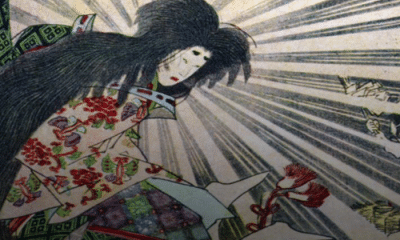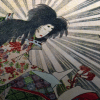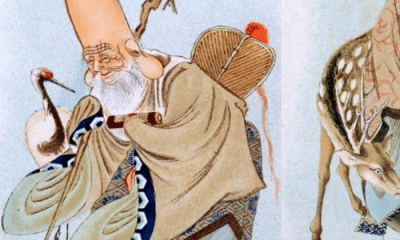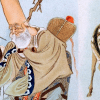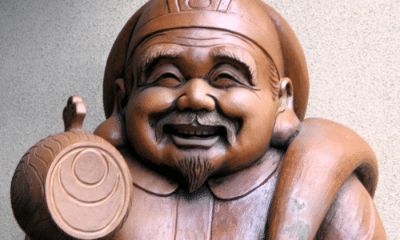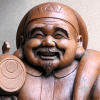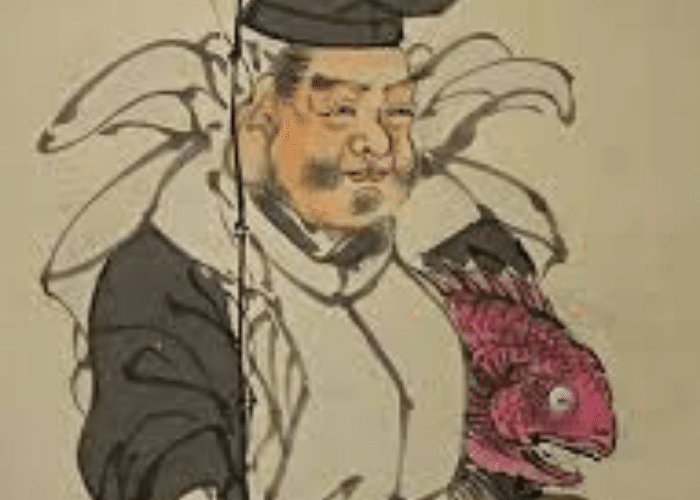
Japanese
Ebisu: The Japanese Lucky God
Ebisu: The Japanese Lucky God
Ebisu is known to many as one of Japan’s Seven Lucky Gods, but there’s more to his story than being part of that group. Keep reading to find out why his origins make him unique, and uniquely popular!
The Seven Lucky Gods are some of the most well-known and well-loved deities in Japan. Although not exceptionally powerful, their attributes and association with wealth and good fortune make them particularly popular.
One of these seven gods, however, is arguably more popular than the others.
Ebisu is unique among the Seven Lucky gods not because of his joyful nature or patronage of fishermen. Instead, he is unique in his origins.
While the other six gods originated aboard, Ebisu is uniquely Japanese. From his origin story to his modern iconography, Japan has embraced their native lucky god longer than any other!
Ebisu’s Ocean Origins
In his earliest iterations, Ebisu was the patron god of fishermen.
His original name is most often given as Kotoronushi no Mikoto. He was a son of Okuninushi, the ruler of all of the earthly kami.
He was originally worshiped in coastal areas, where the majority of people made a living through fishing. He helped to bring a bountiful catch into their nets and keep them safe when they were on the water.
Kotoronushi was associated with animals who helped fishermen. Large animals such as whales and whale sharks could drive shoals of fish into nearby nets, making them auspicious in the eyes of coastal people.
While Ebisu is still revered as the patron of fishermen, his cult soon grew beyond their communities.
When Ebisu began to be worshiped by farmers and merchants further from the shore, both his name and story changed. He was no longer as closely connected to the sea.
Instead, he was regarded as a god of good fortune. While fishermen had seen luck in a good catch, others asked Ebisu to influence their harvest or sales.
Coastal and inland traditions eventually combined by blending Ebisu’s story with that of another god.
His character became intertwined with that of a kami named Hiruko. Instead of being the son of Okuninushi, he was now believed to be the son of Izanagi and Izanami, the creator gods.
According to legend, Hiruko was born deformed because of his mother’s transgressions. Some versions of the story claimed he had no arms or legs, while others went so far as to say he had no bones at all.
Hiruko could not stand because of his deformity, so his survival was doubtful. Shortly before his third birthday, he was cast into the sea in a reed boat.
The child washed ashore far to the north and was taken in by an Ainu man named Ebisu Saburo. He adopted his foster father’s name and learned to fish from him.
At three years old, Ebisu miraculously grew his limbs and began to regain his strength. He was left slightly deaf and with a noticeable limp, but remained cheerful and helpful despite his hardships.
While he became a well-loved god, Ebisu’s disabilities still sometimes made him stand out.
The tenth month of the year, for example, is known as Kannazuki, “The Month Without Gods,” because it is believed that all the kami gather together at The Grand Shrine of Isumo. Because Ebisu cannot hear the summons, however, he does not join him and his is the only feast day celebrated that month.
Ebisu’s continued mirth, however, earned him the name “The Laughing God.” He is usually shown with a joyful expression and, in honor of his origins, a fishing rod and large sea bass in his hands.
While he is still the patron of fishermen, Ebisu’s role has expanded. He is one of Japan’s more popular gods because of his association with luck and wealth.
My Modern Interpretation
Many historians believe that Ebisu’s role changed as he was adopted by people who had little connection to fishing. He became a more general god of good fortune.
Merchants, in particular, quickly came to love Ebisu. As his veneration by them grew, he became even more closely associated with material wealth.
When the Seven Lucky Gods were grouped together to represent good fortune and virtue, Ebisu was an obvious choice for inclusion. He had long been seen as a source of both luck and wealth, and represented a key virtue.
Ebisu was seen as a god who remained good-natured and helpful despite personal hardships. He had worked to overcome great difficulties, displaying perseverance and resilience.
Ebisu’s inclusion in the Seven Lucky Gods not only showed the extent to which his veneration had grown. It also showed him as a uniquely Japanese character.
The Seven Gods of Fortune represented a balance of influences. Three each were from Hinduism, Chinese Buddhism, and Taoism.
While six of the seven gods showed the outside influences that had shaped Japanese culture, Ebisu was the only one of them with an entirely Japanese origin.
Ebisu’s place in the popular grouping showed that not all of Japan’s cultural ideals came from China and India. He was a native god who represented Shinto beliefs and local values.
His story, attributes, and local origins made Ebisu the most popular of the Seven Lucky Gods. He was once venerated in nearly every home in Japan and still continues to hold an important place in the culture.
He is often paired with Daikokuten, the god of the kitchen and plentiful food, in small shops and restaurants. Often taking on the roles of master and apprentice, they are the patrons of small business owners and local commerce.
Small businesses are not the only ones who use Ebisu’s image to bring good fortune.
Many Japanese companies use Ebisu’s name or image in their marketing. One of the country’s oldest breweries features him on its labels, a popular clothing brand shares his name, and several commercials through the years have used his image.
Ebisu is even a popular character at festivals. Costumed impersonators dress as Ebisu at local events not only to promote products, but also to bring his trademark joy and laughter to the event.
Even a quintessentially Japanese good is associated with the native god of fortune. Fugu restaurants that specialize in the preparation of highly toxic pufferfish often display images of Ebisu bot as a god of fishermen and to bring their customers luck on their culinary adventure.
Ebisu’s popularity can be attributed to his cheerful nature and the luck he brings. He is still more well-loved and often depicted than other similarly cheerful Lucky Gods, however.
This outsized popularity is likely a reflection of the fact that Ebisu is the only one of the Seven Lucky Gods who is entirely native to Japan. His local nature and the length of time that he’s been worshipped there has made him an enduring figure in Japanese culture.
In Summary
Ebisu originated as a patron god of fishermen in Japan. Popular in coastal communities, he brought good luck through a bountiful catch.
As he was adopted by non-coastal communities, Ebisu’s legend and purpose changed.
He became conflated with another kami who had been born without limbs. Set adrift at sea and rescued by the Ainu, he eventually grew his missing legs but remained deaf and partially disabled.
Despite this, however, Ebisu was a joyful and happy character. He came to represent a positive attitude and perseverance in the face of hardships and pain.
He also came to represent material wealth. Merchants and households saw the god of good fortune as a source of prosperity through both luck and hard work.
With these attributes, he was a logical god to include in the group of Seven Lucky Gods. He is the only one of the seven whose origins are native to Japan instead of adopted from Chinese and Indian influences.
His native origins and positive attributes have made Ebisu the most popular of the Seven Lucky Gods. Today, his image is used by both large and small businesses to bring luck and invoke the fishing god’s spirit of joy.


